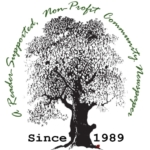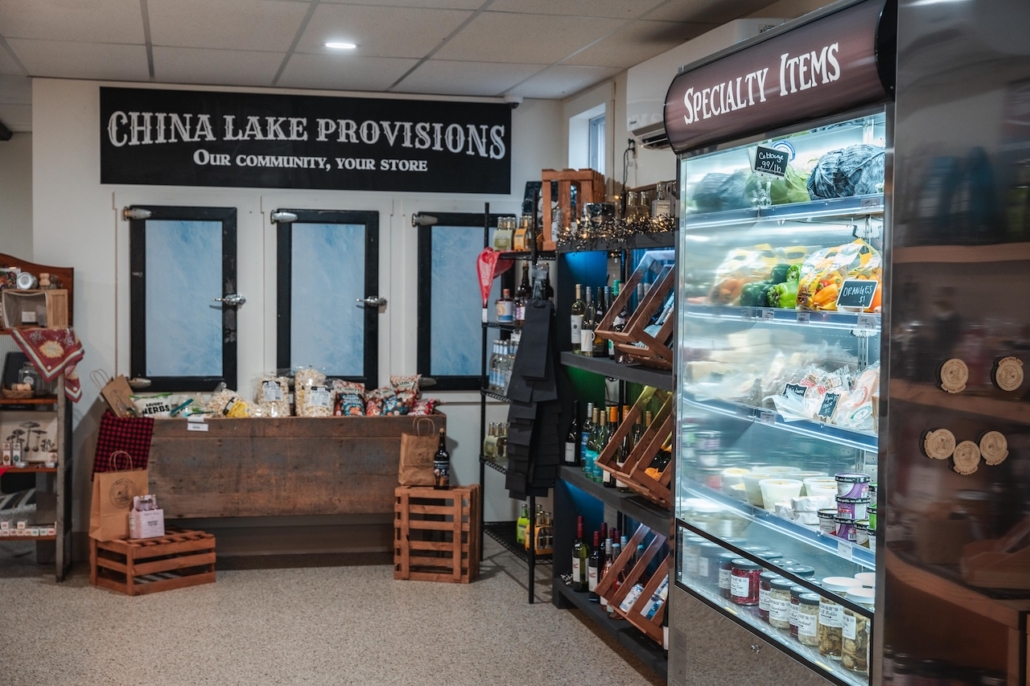CHINA: Privacy becomes issue at RFID public hearing
 by Mary Grow
by Mary Grow
If the small placard hanging from your rearview mirror records that you were at the China transfer station at, for example, 1:11 p.m. on Wednesday, Nov. 13, and lists your name, is your privacy invaded?
That was the major debate at the Transfer Station Committee’s Nov. 13 informational meeting on the RFID (Radio Frequency Identification) system that China officials will introduce as the year ends.
The system requires a vehicle coming into the transfer station to have a numbered placard, most conveniently hanging from the rearview mirror. Sample placards passed around at the meeting are three and a half inches square. Town officials intend to have them available by mid-December.
The goal of the current sticker system, or the RFID system, or a more costly and inconvenient manned entrance building, is to make sure only China residents, or others authorized, use China’s facility. The placards come in two colors, orange for China residents and blue for Palermo residents, who share the facility under a two-town agreement.
Transfer station Manager Tim Grotton expects the RFID system to be more useful than stickers. When an RFID tag rides past the sensor, a light flashes. If a vehicle comes in and there is no light, he and his staff are cued to speak with the driver.
Currently China’s RFID system has only one sensor recording entrances and departures. Town officials intend to seek future grants for more sensors to see how often different areas – trash hopper, recycling building, compost pile, brush pile – are visited.
The system records the owner’s name and the date and time the vehicle entered the transfer station. According to the handout at the meeting, “Encryption prevents other RFID readers from accessing owner information.”
Resident Todd Tolhurst, supported by at least one other man among the 10 attendees, argued that recording names is an unnecessary violation of privacy. He urged Transfer Station Committee members to change the system so the placard is not linked to a name.
Although in theory only town employees would have access to RFID reports, Tolhurst believes they would be public records that anyone could request. He suggested an avid environmentalist might use them to shame people who don’t recycle.
Reminded by Sikora and committee member Mark Davis that much more personal information is available on many town and state websites, Tolhurst replied, “I can’t think of any others that track my movements.”
Tolhurst raised the related question of how long information is kept. Committee members said at least a year, for annual reports to the state, and perhaps longer.
The debate ended with committee member Bob Kurik, from Palermo, proposing the committee look into using only the numbers on the tags, instead of either names or license plates. Sikora added the committee will review the encryption system.
Tolhurst also questioned the cost of the RFID system. Sikora said a $10,500 Maine Department of Environmental Protection (DEP) grant that paid for the tags, software and training was supplemented by a small amount from the transfer station reserve fund. Davis added that hooking up the reader cost nothing: transfer station staffer Kevin Rhoades did the job using a recycled satellite dish.
The handout on RFID distributed at the meeting explained that:
- The DEP helped fund the system because it is intended to provide information to help Maine achieve its 50 percent recycling goal.
- Tracking users will help town officials “adjust staffing, hours of operation, and plan for future physical changes like traffic patterns or capital improvements.”
- Tags are issued from the town office based on proof of residence. One tag is free; there is a $10 fee for a replacement tag if the original is lost, refunded when the tag is returned to the town office (presumably because the resident moved out of town).
- Tags do not need to be renewed annually like the stickers.
Responsible journalism is hard work!
It is also expensive!
If you enjoy reading The Town Line and the good news we bring you each week, would you consider a donation to help us continue the work we’re doing?
The Town Line is a 501(c)(3) nonprofit private foundation, and all donations are tax deductible under the Internal Revenue Service code.
To help, please visit our online donation page or mail a check payable to The Town Line, PO Box 89, South China, ME 04358. Your contribution is appreciated!





Leave a Reply
Want to join the discussion?Feel free to contribute!